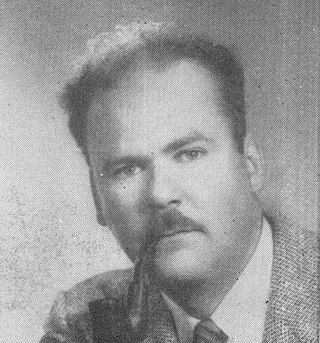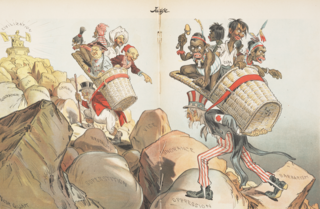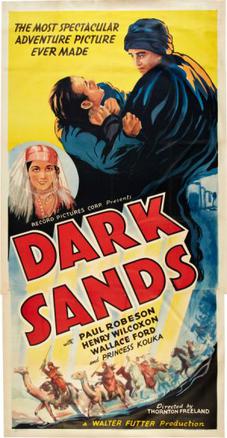
The Azawakh is a breed of dog from West Africa. With ancient origins, it is raised throughout the Sahelian zone of Mali, Niger, and Burkina Faso. This region includes the Azawagh Valley for which the breed is named. While commonly associated with the nomadic Tuareg people, they are also bred and owned by other ethnic groups such as the Peulh, Bella, and Hausa. The Azawakh is more related to the Sloughi than it is to the Saluki.

Joseph Rudyard Kipling was an English novelist, short-story writer, poet, and journalist. He was born in British India, which inspired much of his work.

Dallas McCord "Mack" Reynolds was an American science fiction writer. His pen names included Dallas Ross, Mark Mallory, Clark Collins, Dallas Rose, Guy McCord, Maxine Reynolds, Bob Belmont, and Todd Harding. His work focused on socioeconomic speculation, usually expressed in thought-provoking explorations of utopian societies from a radical, sometime satiric perspective. He was a popular author from the 1950s to the 1970s, especially with readers of science fiction and fantasy magazines.

Tinariwen is a collective of Tuareg musicians from the Sahara Desert region of northern Mali. Considered a pioneer of desert blues, the group's guitar-driven style combines traditional Tuareg and African music with Western rock music. They have released eight albums since their formation and have toured internationally.

The Early Asimov or, Eleven Years of Trying is a 1972 collection of short stories by Isaac Asimov. Each story is accompanied by commentary by the author, who gives details about his life and his literary achievements in the period in which he wrote the story, effectively amounting to a sort of autobiography for the years 1938 to 1949.

"The White Man's Burden" (1899), by Rudyard Kipling, is a poem about the Philippine–American War (1899–1902) that exhorts the United States to assume colonial control of the Filipino people and their country. Originally written to celebrate the Diamond Jubilee of Queen Victoria, the jingoistic poem was replaced with the sombre "Recessional" (1897), also a Kipling poem about empire.
Méhariste is a French word that roughly translates to camel cavalry. The word is most commonly used as a designation of military units.
Assamakka is a small desert town in northern Niger at a main border crossing with Algeria. It is the only official crossing point between the two nations. Assamakka shares the border with the larger town of In Guezzam 10 km on the Algerian side. A main road extends north in Algeria to Tamanrasset, 400 km away. Assamakka is connected to the town of Arlit, 200 km to the south by a road which remains in largely a sand "Piste". From Arlit, the "Uranium Highway", a tarred road built in the 1970s for mining trucks, travels south to Agadez and Niamey.

Tamanrasset, also known as Tamanghasset or Tamenghest, is an oasis city and capital of Tamanrasset Province in southern Algeria, in the Ahaggar Mountains. It is the chief city of the Algerian Tuareg. It is located an altitude of 1,320 metres (4,330 ft). As of the 2008 census, it has a population of 92,635, up from 72,741 in 1998, with an annual growth rate of 2.5%.
"Black Sheep Astray" is a science fiction short story by American writer Mack Reynolds. It is one of thirteen narratives included in the collection Astounding: John W. Campbell Memorial Anthology, a special tribute by Astounding SF authors to the memory of science fiction and fantasy magazine editor John W. Campbell. In terms of plot, "Black Sheep Astray" is the last in a sequence of near-future stories set in North Africa, which also includes Black Man's Burden (1961-2), Border, Breed nor Birth (1962), and The Best Ye Breed (1978). "Black Sheep Astray" and the North Africa series have been called a "notable exception" to the indirect treatment of racial issues in 1960s science fiction magazines.
William Levi Crawford was an American publisher and editor.
"The Ballad of East and West" is a poem by Rudyard Kipling. It was first published in 1889, and has been much collected and anthologized since.

Désert is a 1980 novel written by French Nobel laureate writer J. M. G. Le Clézio, considered to be one of his breakthrough novels. It won the Académie française's Grand Prix Paul Morand in 1980.

Jericho is a 1937 British drama film directed by Thornton Freeland and starring Paul Robeson, Henry Wilcoxon and Wallace Ford. It was released in the US with the alternative title Dark Sands.
Iyad Ag Ghaly, also known as Abū al-Faḍl, is a Tuareg militant from Mali's Kidal Region. He has been active in Tuareg rebellions against the Malian government since the 1980s – particularly in the early 1990s. In 1988, founded the Popular Movement for the Liberation of Azawad. In the latest episode of the Tuareg upheavals in 2012, he featured as the founder and leader of the Islamist militant group Ansar Dine.

"Count" Byron Khun de Prorok was a Hungarian-American amateur archaeologist, anthropologist, and author of four travelogues. He has come to be regarded as a tomb raider, or grave robber, opening up graves and tombs and removing remains and artefacts against the wishes of those laying claim to them.

Black Man's Burden is a science fiction novel by American writer Mack Reynolds. It is the first in a sequence of near-future stories set in North Africa, which also includes Border, Breed nor Birth (1962), "Black Sheep Astray" (1973), and The Best Ye Breed (1978). Black Man's Burden and its sequels have been called a "notable exception" to the indirect treatment of racial issues in 1960s science fiction magazines.

The Best Ye Breed is a science fiction novella by American writer Mack Reynolds. It is the third in a sequence of near-future stories set in North Africa, which also includes Black Man's Burden (1961-1962), Border, Breed nor Birth (1962), and "Black Sheep Astray" (1973). The Best Ye Breed and the North Africa series have been called a "notable exception" to the indirect treatment of racial issues in 1960s science fiction magazines.

James Dallas Bowser was a journalist and educator in Kansas City, Missouri. He was the principal of Lincoln School there from 1868-1879 and later the principal of Attucks School. He was a civil rights leader in the city and was widely known for his poem, "Take up the Black Man's Burden", written in 1899 in response to British poet Rudyard Kipling's poem "The White Man's Burden". Bowser was a member of the Citizen's League of Kansas City Inter-Racial Committee.

Bir el-Garama is a well in the south of Algeria in Tamanrasset Province, 150 kilometres (93 mi) northeast of Tamanrasset, known as the site where a large part of the French colonial Flatters Expedition was wiped out by Tuaregs. It is better known on French maps by its Tamahaq language name: Tagmout T-an Koufar, or 'well of the foreigner'.














